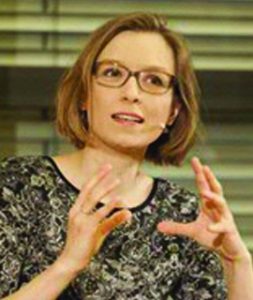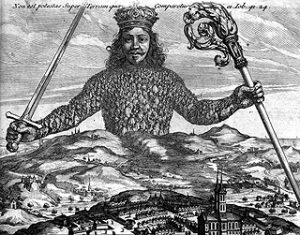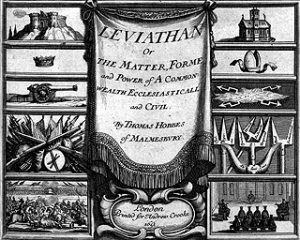
Born in Nürnberg, Lisa Herzog studied philosophy, economics, political science and modern history in Munich and Oxford. Interested in the interface between political philosophy and economics and in the ways that the world of work is changing, Liza Herzog teaches philosophy at the University of Groningen in the Netherlands and is director of the Centre for Philosophy, Politics and Ecconomics.
As Philipp Blom observes in his book, What’s at Stake, the reason why the Ancient World never made more technological discoveries than it did, was because there was no need for labour-saving technologies. All work was done by slaves and as slaves were in abundant supply, there was no impetus to invent labour-saving devices. With the abolition of slavery, the passing of the feudal system and the Declaration of the Rights of Man, labour became costly, prompting the continual invention of labour-saving devices. In all walks of life, this has resulted in machines and devices successively replacing human workers. Taken to an extreme this can only end when all jobs available are done by machines. Both when this point is reached and along the way, for many there is no other way of solving the resulting problems than through the introduction of a universal basic income. Although one can dismiss this as a simplistic way of seeing and solving a major and highly complex conglomerate of problems, the universal basic income it is intended proponents as part of a package of change whose ultimate aim is to change the way capitalism works. Nevertheless a referendum held in Switzerland in 2016 on whether a universal basic income should be introduced resulted in a vote of 76.9% against. More recently a petition for a referendum in Austria failed to acquire the required number of signatures. As observed by Ulrike Herrmann, a universal basic income can only be afforded by a capitalist society committed to perpertual economic growth and so is not an option for any form of post-capitalist society (for more on this question see the Ulrike Herrmann article). For Lisa Herzog, “people do not want a mandate for doing nothing, they want better working conditions” and a universal basic income should never be anything more than a part of a much wider package of change and innovation.
Like Herrmann, Lisa Herzog is alarmed by and calls attention to the fact that economics today is taught without enough reference to its history and without reference to philosophy. This has resulted in the cynicism that is endemic to modern culture becoming entrenched in an economic model that is nothing less than a warped and distorted view of what a human being is and can be. Recently, this cynical view that we have of ourselves has been challenged by Rutger Bregman in his book, Humankind. This draws from practical examples and is immensely important, nevertheless it is also not only important but vital that the theoretical roots of the problem be diagnosed and analysed. In her book, Freedom is not only for the Rich: A Plea for a New Form of Liberalism, Lisa Herzog begins by examining the notion of freedom and the conception of Homo oeconomicus, the contemporary free-market model of what supposedly, a human is. In Neo-Liberalism, Homo oeconomicus is a free agent who in everything he does, acts solely so as to further in his own interests and fulfil his own ends. Homo oeconomicus is important in Neo-Liberalist thought as this proverbial „he“ enables a crucial insight first made by Karl Marx, to be ignored. This is that over time, un-regulated capitalism results, not in free markets with, for any given product there being a range of different manufacturers, but rather, instead a small number of very large companies emerge, who then dominate the market and prevent any further competition from entering the field. These are the multi-nationals of today, with the digital revolution proving Marx right a second time when, from out of the initial diversity of the internet, a small number of more than well-known „Tech Giants“ emerged. For more on this and for an excellent then and now introduction to economic theory, see Ulrike Hermmann’s No Capitalism is also not a Solution (unfortunately only available in German). Homo oeconomicus is important as he enables the myth of a perfectly free market to be propagated, even though it is perfectly clear that this is not how the world works. The name Neo-Liberalism derives from the Liberalism propageted by Adam Smith who, observing the industrial revolution in its water-powered incarnation, did advocate a free, largely un-regulated market and did not see what Marx saw, who was able to observe the effects and workings of the steam-powered industrial revolution. Neo-Liberalism thus harks back to an age of supposed innocence and the rightness of „the invisible hand“ that Smith suggested, guided the free market so that which was right and best would win through. Although the state of the world today shows that this does not happen, Neo-Liberalism is the doctrine adhered to by the advisors of most of most of world’s governments and leaders. The doctrine of Neo-Liberalism is thus associated with power and the maintenance of power by the few, with the notion of Homo oeconomicus as a perfectly free, and completely unencumbered agent, being used to say that there is also a perfectly free market-place in which he does his shopping. Put in terms of chaos theory, money today is a fudamentally complex system, which is only partially predictable, whereas Neo-Liberalists see it as a simple system which is determinately predictable – even though their models failed to forsee the crash of 2007/2008 and are incapablle of solving the Euro-zone crisis (see Herrmann above). Thus in understanding the economics of where we are today, one of the notions that must be re-examined is that of Homo oeconomicus, who must traced back to his historical roots. As Herzog observes, this view has its origins in the work of Thomas Hobbes and John Locke and it is important for the views of these two thinkers to be seen and evaluated within their historical context. The context lying behind Hobbes and Locke’s emphasis on people who make their own decisions and follow their own goals, was that in the seventeenth century, if people did not actively lay claim to this ability they would find the church telling them what to do and what they should think. Associated with the free market is the job market and this is essential if people are to be free to look for new jobs and thus realize their maximum potential instead of being stuck in a feudal system where each person has a predetermined role in society. Asserting that each human being has their own agenda of aspirations and preferences was thus an important and necessary step in the defining of human freedom and it is on this that the right of each person to pursue happiness in their own way is based. In the case of Hobbes, it is “by right of nature” that each man has the liberty to act and use his body for “doing anything, which in his own judgement and reason he shall conceive to be the aptest means thereunto”. This right of nature however is mitigated by two “laws of nature”, the first of which is to strive for peace and the second of which is:
“that a man be willing, when others are so too, as far-forth, as for peace, and defence of himself he shall think it necessary, to lay down this right to all things; and be contented with so much liberty against other men as, as he would allow other men against himself.”
In this way, the urge to do what one wants is mitigated by a yearning for peace combined with the knowledge that peace and security can only be attained through the companionship of others and that this will involve entering into agreements and the making of compromises. In Locke, the setting up of a commonwealth of people is prompted by the need for “property” to be better protected. Hobbes’ Leviathian reads like a legal document and in many senses is one. Similarly Locke’s treatise of political philosophy reads like and is intended as a manifest for free trade. In Locke, “property” however means not only a person’s material goods but also their life and liberty so that as in Hobbes, the “wealth” held in common is a general well-being that does not refer solely to money. In both Hobbes and Locke although individuals are seen as making their own decisions without being externally influenced this does not mean that such decisions are devoid of moral considerations. For Hobbes in addition to the first and second laws of nature, there is a third which says, “that men perform their convenants made” and “in this law of Nature consisteth the fountain and origin of “Justice”.” Justice thus comes into being the instant a convenant or contract is made and in agreeing to enter into a contract a moral imperative is invoked against which all future doings are weighted. The Homo oeconomicus model thus not only ignores the historical context in which individuals were originally postulated as being free to pursue their own interests, it also strips them of the moral capacities that both Hobbes and Locke endowed them with. Clearly underlining this dualism, the frontispiece of Hobbes‘ Leviathian shows the empowerment of a sovereign through the coming together of a multitude of individuals to form a commonwealth.

Below, the two aspects of a sovereign’s power are shown, represented in terms of military and ecclesiastical/judicial images and symbols. With respect to an individual, these correspond to or outward capacity for action and our inner ability to form opinions, judgements and beliefs. Via the sword and crozier that symbolises his power, the sovereign is entrusted, for the good of the commonwealth, with authority to address matters in both realms.

Apart from being historically corrupt, as Herzog observes, the Homo oeconomicus model is in addition empirically flawed. On the one hand it denies the human capacity of altruism whilst on the other, it assumes that human beings, in ruthlessly pursuing their own ends, do so in a way that is entirely rational. With respect to altruism, in situations where there are enough resources to go round, neurobiology has shown that humans do behave altruistically and that it is only when fears arise that resources might become scarce, that the selfish behaviour becomes apparent. As pointed out by Maja Göpel, who also rejects the Homo oeconomicus model, the falsity of the notion was demonstrated at the end of the 1970’ies by the so-called „Ultimatum Game“. This was developed by the economist, Werner Güth and a team of colleagues. In the game there are two players, one of whom is to be given a sum of money on the condition that the other person is in agreement, with the suggestion being made that the money could be shared. Here, the person with the money is allowed to make a single offer, which if rejected results in neither player receiving any money at all. The player with the money must therefore decide what the other player is likely to see as being fair and acceptable. To the surprise of economists, a share of 30% emerged as what was generally thought as a fair means of dividing the windfall. This is because according to the Homo oeconomicus model, the second players ought to have been content with lesser amounts. But instead a sense of fairness kicked in, with the second players deciding that, when less than 30% was offered, no one should receive any money at all. Although the Ultimatum Game clearly debunks the Homo oeconomicus model, this simplistic, egotistical and cynical model is still in use today and when societies are run and constructed on the assumption that people are mean and selfish, it is hardly surprising that they then have no choice but to behave in such a way. For further refutations of the Homo oeconomicus model, see the article on Maja Göpel. With respect to the rationality of our decision making-processes it has further been found that when offered the choice of receiving 100 Euro instantly or 110 Euro a month later, people will tend to opt for the instant pay-out option despite the obvious fact that waiting longer for a larger sum would be a more rational course of action. This shows our “a bird in the hand is worth two in the bush” mentality, which becomes understandable when one considers that a significant part of our evolutionary past was spent as hominoids wandering the African Savannah, living on fruits, nuts and roots and scavenging from the remains of kills by big cats. Accordingly Lisa Herzog argues that the models proposed by Hobbes and Locke should be updated to include both our capacity for altruism and our weaknesses.
For Herzog not only should a model of what a human being is bear in mind that at times we need protecting from ourselves, it should also take into account that many things on offer in the modern world are packages of considerable complexity which although they are necessary, cannot be understood by a consumer to the same degree as an expert. This means that here again, consumers are in need of protection. Bearing both of these considerations in mind, following Hobbes and Locke, there arises the notion of people coming together and agreeing that there should be a common administrative body which ensures that on the one hand people have the freedom and safety to do what they want, whilst on the other, wherever possible, the activities of one individual do not infringe upon the rights of another. Here the key phrase is “wherever possible” and Herzog argues that such balances must not only be found but must also be vigilantly maintained and updated. While the freedom of individuals and markets are important, at some point regulation must step in. As recent North American history shows, growth in the most unregulated market in the world has not lead to increased prosperity for all or indeed for the many but rather has been restricted to the very few. For the rest, prosperity has either stagnated or decreased. In this way, proceeding step by step with reference to examples and historical precedents, Herzog makes a well-grounded case for a new form of liberalism. This goes back to the original meaning of the word and embraces a worldview in which although the freedom of the individual is of the utmost importance, taxation and regulation are accepted as being necessary for the preservation of values and social balances. For Herzog, freedom should be available in all its forms for as many citizens as possible and not just a few. Illustrating this is the fact that societies where the difference between rich and poor are moderate have lower crime rates than societies where the differences are large. As such things as contentment and happiness are difficult to measure in surveys, a low rate of crime is taken as an indicator that they are present. This in turn implies that in societies with low crime rates, individuals see themselves as being able to realise their potential and are not unduly frustrated. In arguing for a new form of liberalism, Herzog re-examines the words “earning” and “to earn” and suggests that a return should be made to the meanings of these words whereby an individual, through deeds, actions and work can earn, such non-monetary things as praise, respect and acknowledgement. These qualities she argues should be re-introduced into the workplace and where in any form of work they are absent, the use and validity of the activity under consideration should be questioned. Here no scruples should be made about the introduction of bans or high tax-bracket taxation. In Britain, this is the thinking that lies behind the profits from The National Lottery being used to fund cultural and social projects. It is in a sense “dirty money” and for Herzog the activities of the financial sector are in dire need of being examined in this light. Similarly she argues that such terms as “ethos” and “professional honour”, despite sounding old-fashioned, are desperately in need of being re-introduced and of being seen as referring to things that are real and important. In this way Herzog sketches out the beginnings of ways by which liberalism in the original sense of the word may be updated and redefined. For Herzog, Homo oeconomicus and the ceaseless, competitive striving to out perform and have ever more of everything is a result of too many areas of human activity being run on a free market basis and of a competitive, money fixated culture. As culture and values can be changed Herzog therefore sees capitalism as being something that can be changed through culture. The question is therefore not: „Capitalism, yes or no?“ but of the culture in which capitalism is embedded and the values according to which it then articulates and manifests itself.
In the last two chapters of her book, Herzog addresses what in the Reloading Humanism mission statement is seen as being THE QUESTION. This is the question: “Is it possible for us to live happy and fulfilled lives without placing an undue burden on our environment and without exploiting other human beings or jeopardising the quality of life of those who come after us?” For Herzog there is no alternative in sight to capitalism and indeed it is difficult to see how, in a complex, global world human beings are to do business with each other except through transactions that involve a market place that is in some sense “open” or “free”. Like the workplace, Herzog argues that capitalism can be changed and indeed the changing of capitalism that she proposes is to be implemented at all levels of human interaction including individuals taking a stance in the workplace and insisting on the re-introduction of long term responsible practices in which both parties involved in a transaction, do genuinely benefit. The motivation for this is the recognition that money is not everything and that the point of work is to create value in a way that is beneficial for society and the world as a whole and which is justifiable with respect to the environment. For Herzog, Homo oeconomicus and the ceaseless, competitive striving to out perform and have ever more of everything is a result of too many areas of human activity being run on a free market basis and of a competitive, money fixated culture. As culture and values are things that can be changed she sees capitalism as something that can be changed through culture. The question is therefore not: „Capitalism, yes or no?“ but of the culture in which capitalism is embedded and the values according to which it then articulates and manifests itself. When a whole generation of workers begins to insist from potential employers that the work they are to do should follow ethical principles, then Herzog argues, there is a potential for major change. On a private level the point of work is, if nothing else, to pay one’s way in life and have time left over for the things that really matter such as family and friends. Driven by the need for time, Herzog sees the potential for a variety of models to emerge according to which those in work will seek to ensure that they have the time they want for the leading of a non-work life. Examples of this that one can see today are the increasing amount of work being done on a part time basis, as flexi-time, or at home. As individuals become more insistent that future employers offer such packages, so changes in the workplace will be introduced that in turn offer precedents for the introduction of further changes of an increasingly ethical nature concerning what and how things are done. Herzog thus sees the search for sense and meaning in our lives as the motor for the changes that our planet so urgently needs. All this hangs however, as Herzog admits, on our finding the time to be ourselves. Only when we have time to be ourselves can we think about who we are and where in life we might want to go and what we might want to become. Only when we have time for ourselves can we ascertain our aims and goals and so become the worthy descendants of the citizens, who in Hobbes and Locke, come together and agree that a community, with a government, should be formed for the good of all.
In Saving Work: A Political Appeal, Herzog continues the themes begun in Freedom isn’t only for the Rich. Beginning with a debunking of the heroic status accorded to „the digital entrepreneur“ she shows how in debates concerning digitalisation two extremes are often taken as unquestioned departure points. One is the view of „digital optimism“ according to which digitalisation will solve all problems. The other is its opposite, digital pessimism, which assumes that the effects of digitalisation can only be negative. Between these extremes there is Herzog argues, a vast spectrum of possibilities that can be defined, negotiated and fought for. Here however governments must step in and play an active role in the fostering and development of a society in which work is made more human. The mechanical view of work inherited from the factories of the nineteenth and early twentieth century must be abandoned as this is the kind of work that can be done by robots. That which is left over is Herzog argues, work that is by definition creative and social and this is something that only human beings can do. Herzog therefore sees digitalisation as a unique chance to return to the fundamental questions of how work, life and society should be. Although it is conceivable that in an old people’s home, residents could be cared for by robots the question is, is this what we want? At the end of the day, someone has to make a stand and say that whilst it is acceptable for standardised products and tasks to be dealt with by machines and programs, the social realm must be seen as having a different status and worthy of an added value. With regard to the management of companies, Herzog sees the stock market model of companies owned by share-holders as outdated and argues for models in which companies are owned by employees and managers are elected democratically by their employees. This however is not to be introduced in a sudden and all at once manner but rather through the encouragement of such initiatives so that through trial and error a step by step way forward may be discerned. In the debate on how capitalism is to be changed and a zero growth economy arrived at, Lisa Herzog’s approach is important as it shifts the focus back onto the reasons why people work, so that via the individual and their motivation for working, values may be arrived at.

